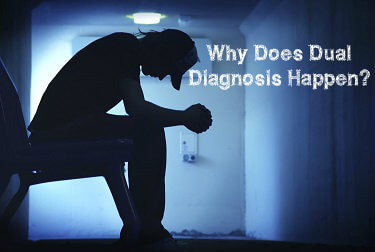For a long time, medicine and psychology kept their distance from one another. Eventually, each side recognized the phenomenon of mental illnesses which is caused by brain chemistry and the two sciences finally began to work together. Over time, the two have become even more closely intertwined by the rise of dual diagnosis.
What Is Dual Diagnosis?
Dual diagnosis recognizes that a patient has two simultaneous health issues which are interacting with one another or augmenting each other’s effects. The typical dual diagnosis involves substance abuse and a mental illness. For example, many people use substances such as alcohol or illegal narcotics and simultaneously suffer from clinical depression.
This phenomenon was recognized long ago but the recognition that the two affect one another and need to be treated together is much newer. Professionals who give dual diagnoses understand that treating one illness or problem without dealing with the other will result in failure.
Why Does Dual Diagnosis Happen?
 Medicine and psychology are works in progress. Experts cannot be sure about the reasons behind the manifestation of two such issues at the same time. However, there are some basic relationships that are obvious.
Medicine and psychology are works in progress. Experts cannot be sure about the reasons behind the manifestation of two such issues at the same time. However, there are some basic relationships that are obvious.
For example, someone may become depressed concerning a traumatic event of a physical or emotional nature in his or her life. In order to escape that depression, the person may begin using drugs or alcohol in an abusive way. When these drugs bring relief, even of a transitory kind, the person seeks more of them. Addiction may result.
How Do Professionals Treat Dual Diagnoses?
As of yet, only small numbers of people who merit dual diagnoses are actually receiving simultaneous treatment for both issues. This is due to a number of factors. For instance, many people with mental health issues may be denied treatment at facilities if they are discovered to have a substance abuse problem. At the same time, a facility for addiction may already have its hands full with monitoring addicts’ behavior and not be properly equipped or staffed to handle genuine mental illnesses such as schizophrenia or clinical depression.
Some professionals prefer to approach the situation sequentially. They may try to treat the most severe issue first before addressing the second. This does not necessarily mean that the second issue will be entirely ignored during treatment for the first issue. It only means that treatment will primarily address the issue which most profoundly affects or alters the life of the patient.
Unique Treatments for Dual Diagnosis
Other professionals are beginning to attempt integrated treatment for these cases. In order for such interventions to be effective, they must seamlessly blend distinct treatments into one approach. This approach will have to involve more than one health professional because it requires the attention of multiple disciplines. In addition to highly trained professionals such as medical doctors and psychologists, patients will need experts in treatment compliance and other fields. The complexity of this treatment makes it very expensive and is another factor in limiting its usage.
The concept of a dual diagnosis is gaining acceptance more rapidly than the implementation of treatment for these cases. However, as recognition of the frequency with which such complicated cases actually occur, some experts hope that integrated forms of treatment will become more widely available to patients. The long-term costs of ignoring the problem outweigh the immediate expenses involved in treatment.
Learn More About The Types Of Dual Diagnosis







